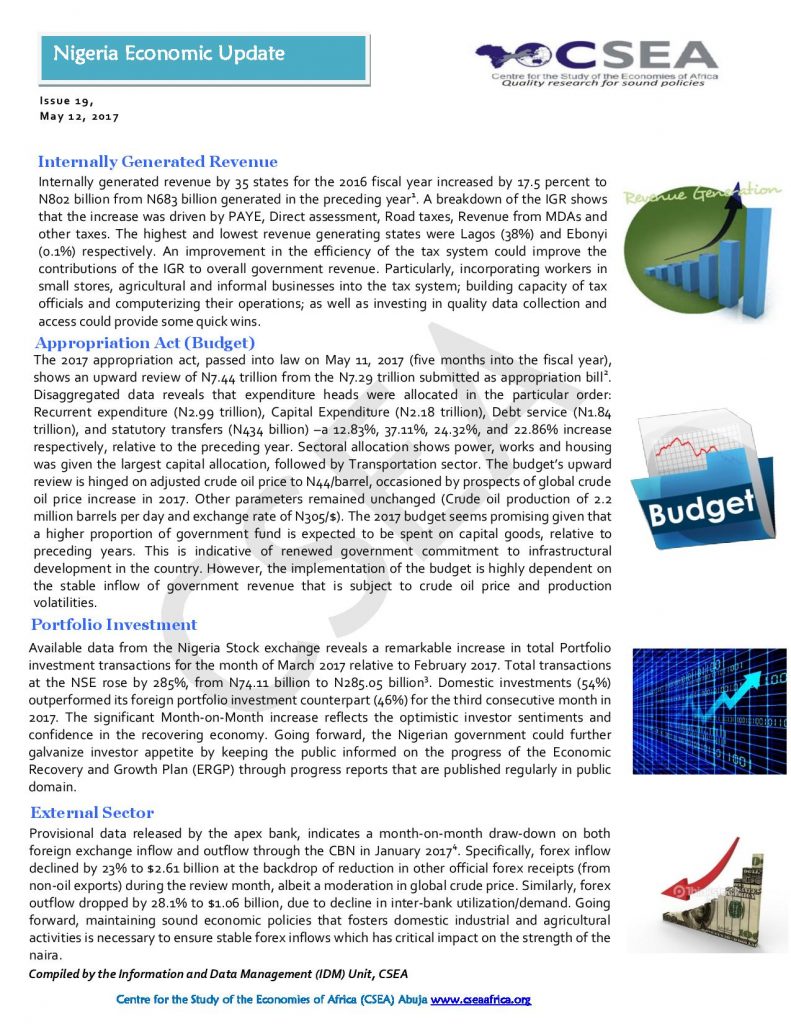Macroeconomic Report & Economic Updates

May 25, 2017
Nigeria Economic Update (Issue 19)
Internally generated revenue by 35 states for the 2016 fiscal year increased by 17.5 percent to N802 billion from N683 billion generated in the preceding year. A breakdown of the IGR shows that the increase was driven by PAYE, Direct assessment, Road taxes, Revenue from MDAs and other taxes. The highest and lowest revenue generating states were Lagos (38%) and Ebonyi (0.1%) respectively. An improvement in the efficiency of the tax system could improve the contributions of the IGR to overall government revenue. Particularly, incorporating workers in small stores, agricultural and informal businesses into the tax system; building capacity of tax officials and computerizing their operations; as well as investing in quality data collection and access could provide some quick wins.
Related
Tax Collected
Nigeria Economic Update (Issue 45)
Nigeria Economic Update (Issue 35)
Nigeria's Real Gross Domestic Product (GDP) increased at an annual rate of 0.55 percent in 2017Q21, compared to the -0.91 percent (revised) in 2017Q1 indicating the first quarterly positive growth rate since 2016Q1 and an evidenced exit from five quarters of economic recession. The acceleration in real GDP in 2017Q2 reflects the significant increase in oil sector GDP from -11.64 percent in 2017Q1, to 1.64 percent in 2017Q2 a 13.3 percentage points Quarter-on-Quarter increase. However, Non-oil GDP moderated by 0.3 percentage points to 0.45 percent. Despite the recent favorable economic performance, growth prospect remains fragile.
